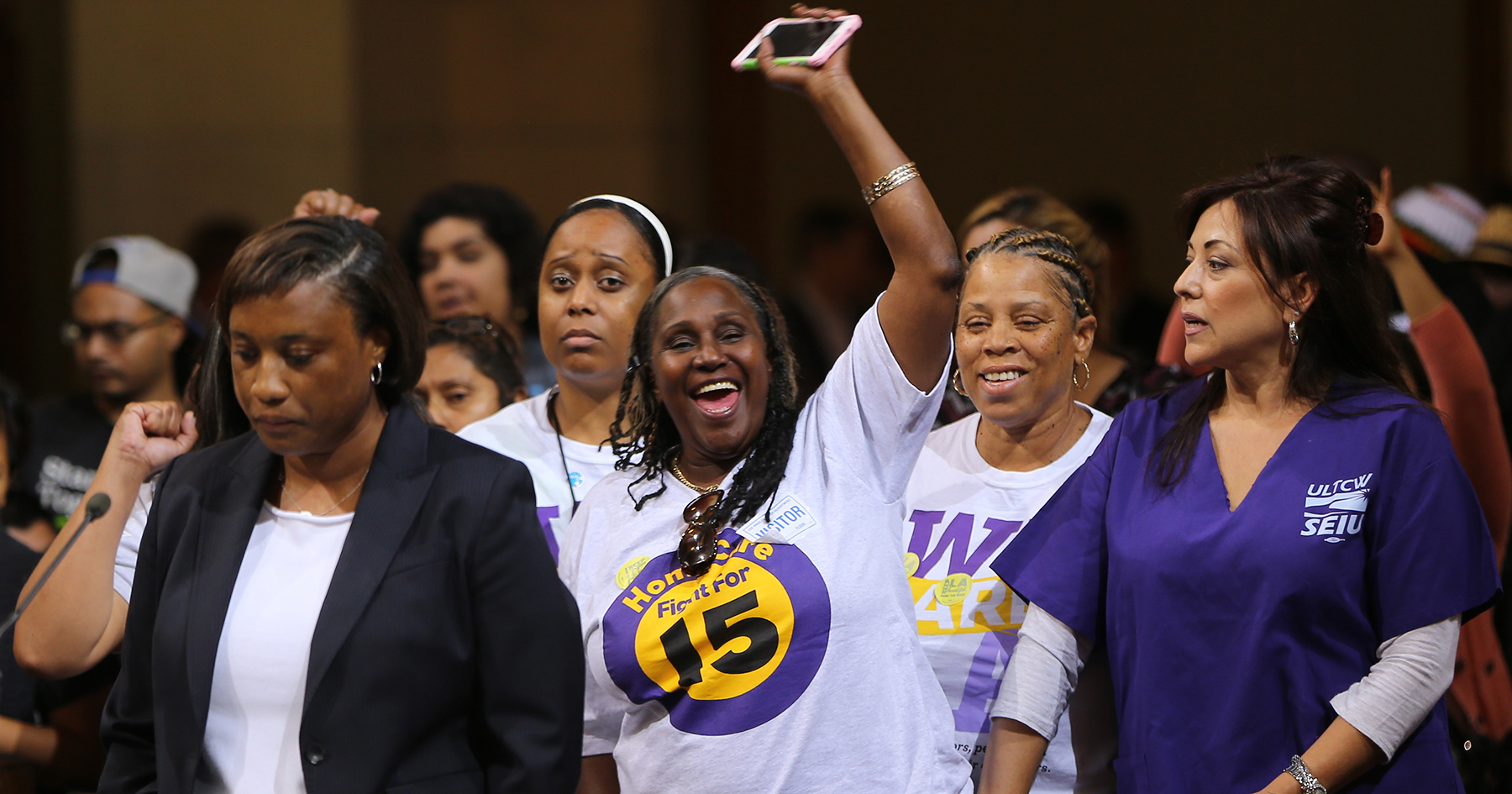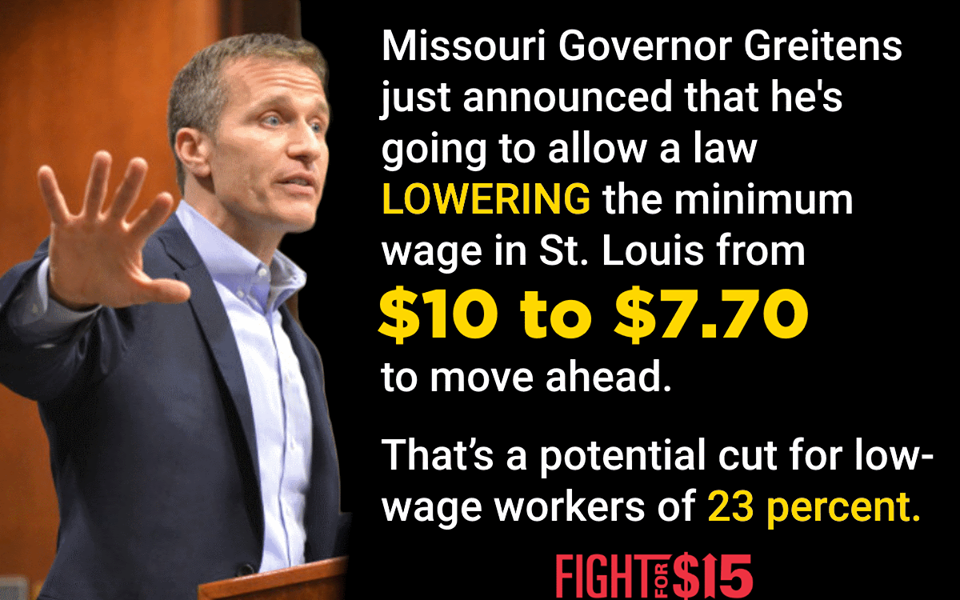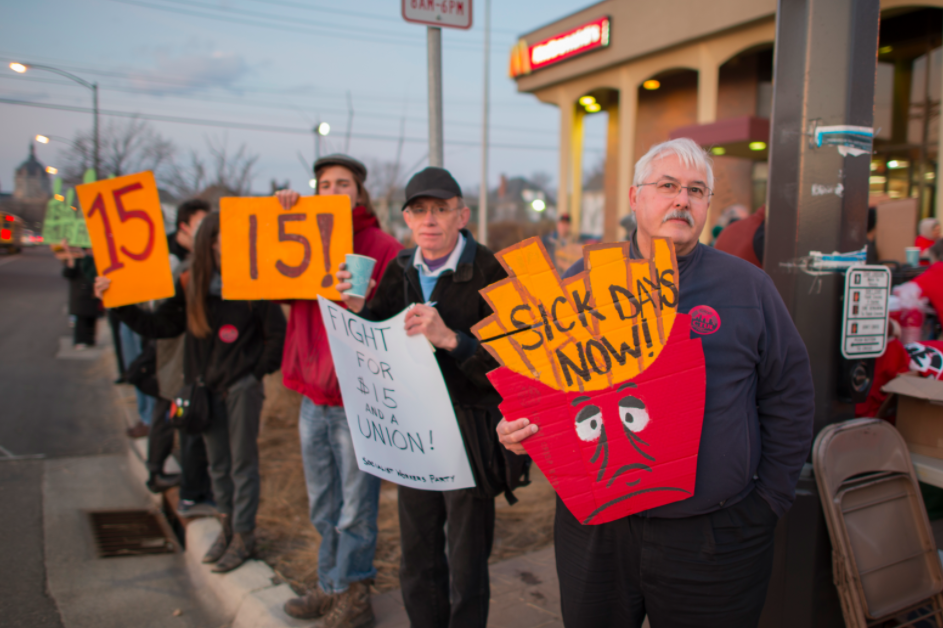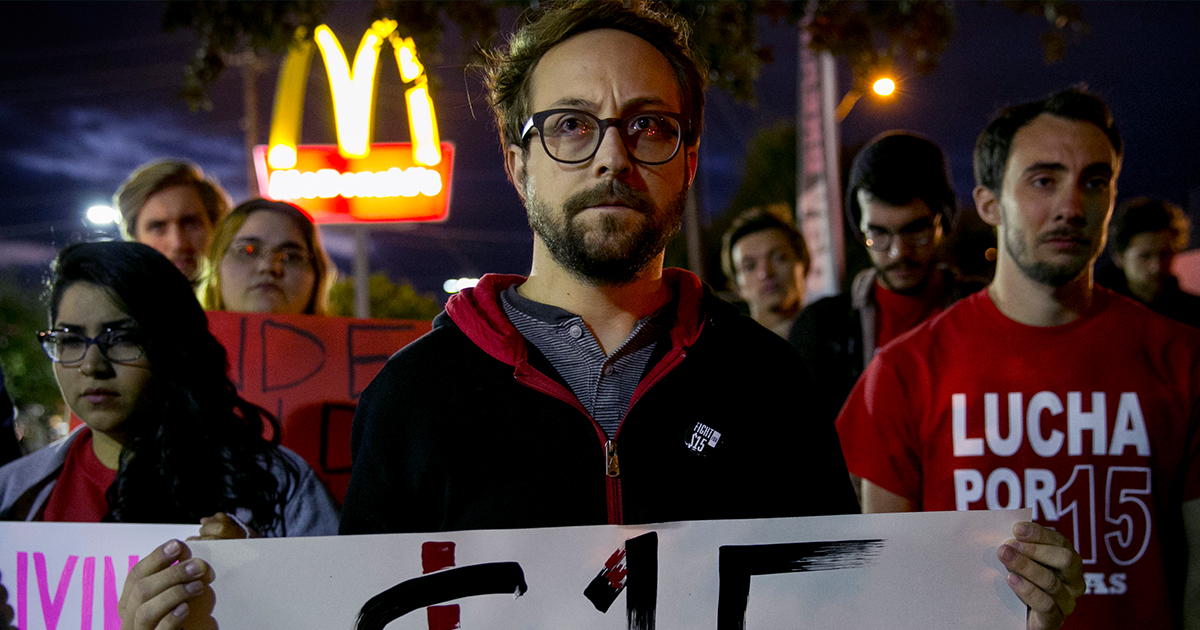Why Missouri Is Reversing St. Louis's Minimum Wage Increase

By:
Workers in St. Louis who benefited from the city's minimum wage increase will get a significant pay cut in August.
 AP Photo/Damian Dovarganes - apimages.com
AP Photo/Damian Dovarganes - apimages.com
Missouri Governor Eric Greitens, a Republican, approved a "preemption" law last week that prohibits cities from setting their own minimum wage. That will undo St. Louis' minimum wage increases—which currently stands at $10 after the law was passed in 2014, and was supposed to rise to $11 in Jan. 2018. Starting Aug. 28, however, the city will revert back to the state's $7.70 minimum wage.
Greitens described the St. Louis minimum wage increase as a job killer in a June 30 press release.
"The St. Louis politicians who did this claim it will help people," he said. "It'll hurt them. This increase in the minimum wage might read pretty on paper, but it doesn't work in practice. Government imposes an arbitrary wage, and small businesses either have to cut people’s hours or let them go."
 Facebook - facebook.com
Facebook - facebook.com
The decision represents a setback for workers' rights advocates, including the group Fight for 15, which has led national efforts to raise the minimum wage to $15 per hour. Numerous cities across the U.S., from Seattle to Washington, D.C., have answered that call, approving plans for gradual minimum wage increases.
Missouri's governor claimed that workers in cities with a higher minimum wage are suffering.
 Wikimedia - wikimedia.org
Wikimedia - wikimedia.org
"The minimum wage went up, and the results are heartbreaking: the average worker in the city lost $125 a month," Greitens said, referencing a June 2017 study that analyzed the economic effects of Seattle's minimum wage hikes in 2015 and 2016. "Liberals say these laws help people. They don't. They hurt them."
But the study in question—which found that employers have reduced their payrolls, limited hiring, and fired workers in response to minimum wage increases—has been contested by a follow-up report from the Economic Policy Institute.
 AP/Jay Janner - apimages.com
AP/Jay Janner - apimages.com
Economists Ben Zipperer and John Schmiitt said the report "suffers from a number of data and methodological problems that bias the study in the direction of finding job loss, even where there may have been no job loss at all."
Those problems include the study's assumption that a large spike in high-wage jobs in Seattle were caused by the minimum wage increase, rather than economic trends that were independently at play. The study's analysis also excludes 40 percent of workers in the city who work at "multi-location businesses, such as chains," the economists wrote.
"The inability to track employees in multi-site businesses means that the study paints an incomplete picture of employment trends in Seattle and in the state as a whole. In particular, if the minimum wage shifts the composition of employment from single-location to multi-location establishments, the inability to track employment in these establishments will cause the authors to overstate negative employment effects of the policy."
Proponents of raising the minimum wage have argued that wages haven't increased at a pace that's consistent with inflation, making it difficult for these workers to afford housing and other basic necessities. The federal minimum wage is set at $7.25 per hour, for example; that's about four dollars less than the federal minimum wage, adjusted for inflation, in 1968, according to the Bureau of Labor Statistics.
The economic case in favor of minimum wage hikes is that as incomes rise, workers will spend more and stimulate economic growth, freeing up employers to create more jobs.
